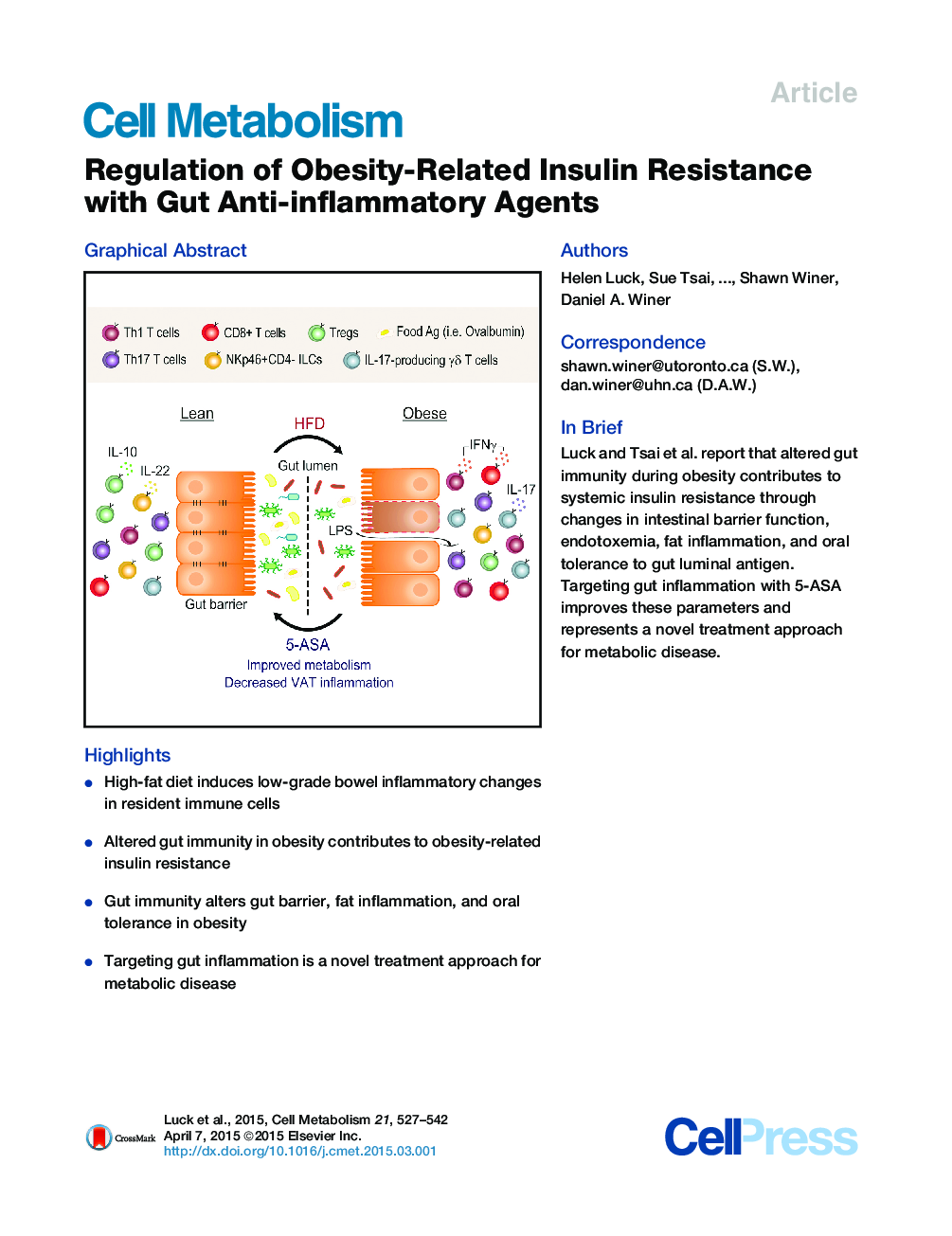| Article ID | Journal | Published Year | Pages | File Type |
|---|---|---|---|---|
| 2792486 | Cell Metabolism | 2015 | 16 Pages |
•High-fat diet induces low-grade bowel inflammatory changes in resident immune cells•Altered gut immunity in obesity contributes to obesity-related insulin resistance•Gut immunity alters gut barrier, fat inflammation, and oral tolerance in obesity•Targeting gut inflammation is a novel treatment approach for metabolic disease
SummaryObesity has reached epidemic proportions, but little is known about its influence on the intestinal immune system. Here we show that the gut immune system is altered during high-fat diet (HFD) feeding and is a functional regulator of obesity-related insulin resistance (IR) that can be exploited therapeutically. Obesity induces a chronic phenotypic pro-inflammatory shift in bowel lamina propria immune cell populations. Reduction of the gut immune system, using beta7 integrin-deficient mice (Beta7null), decreases HFD-induced IR. Treatment of wild-type HFD C57BL/6 mice with the local gut anti-inflammatory, 5-aminosalicylic acid (5-ASA), reverses bowel inflammation and improves metabolic parameters. These beneficial effects are dependent on adaptive and gut immunity and are associated with reduced gut permeability and endotoxemia, decreased visceral adipose tissue inflammation, and improved antigen-specific tolerance to luminal antigens. Thus, the mucosal immune system affects multiple pathways associated with systemic IR and represents a novel therapeutic target in this disease.
Graphical AbstractFigure optionsDownload full-size imageDownload high-quality image (172 K)Download as PowerPoint slide
